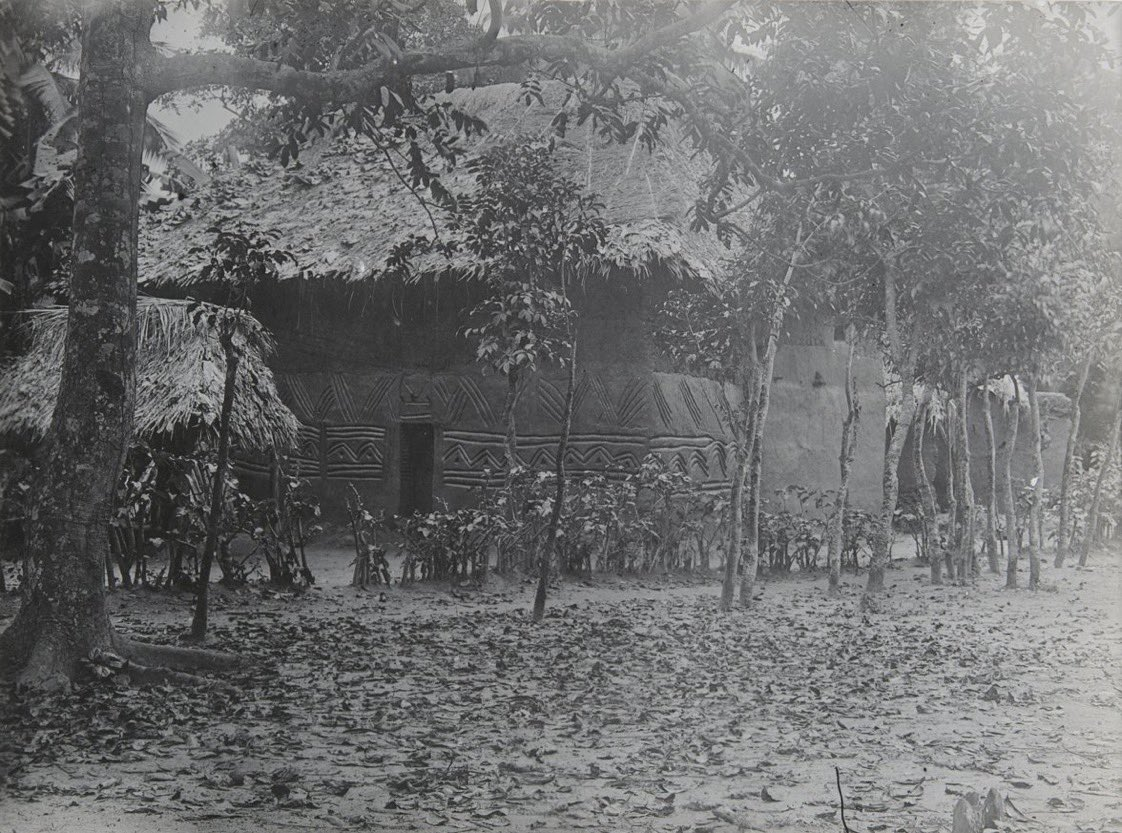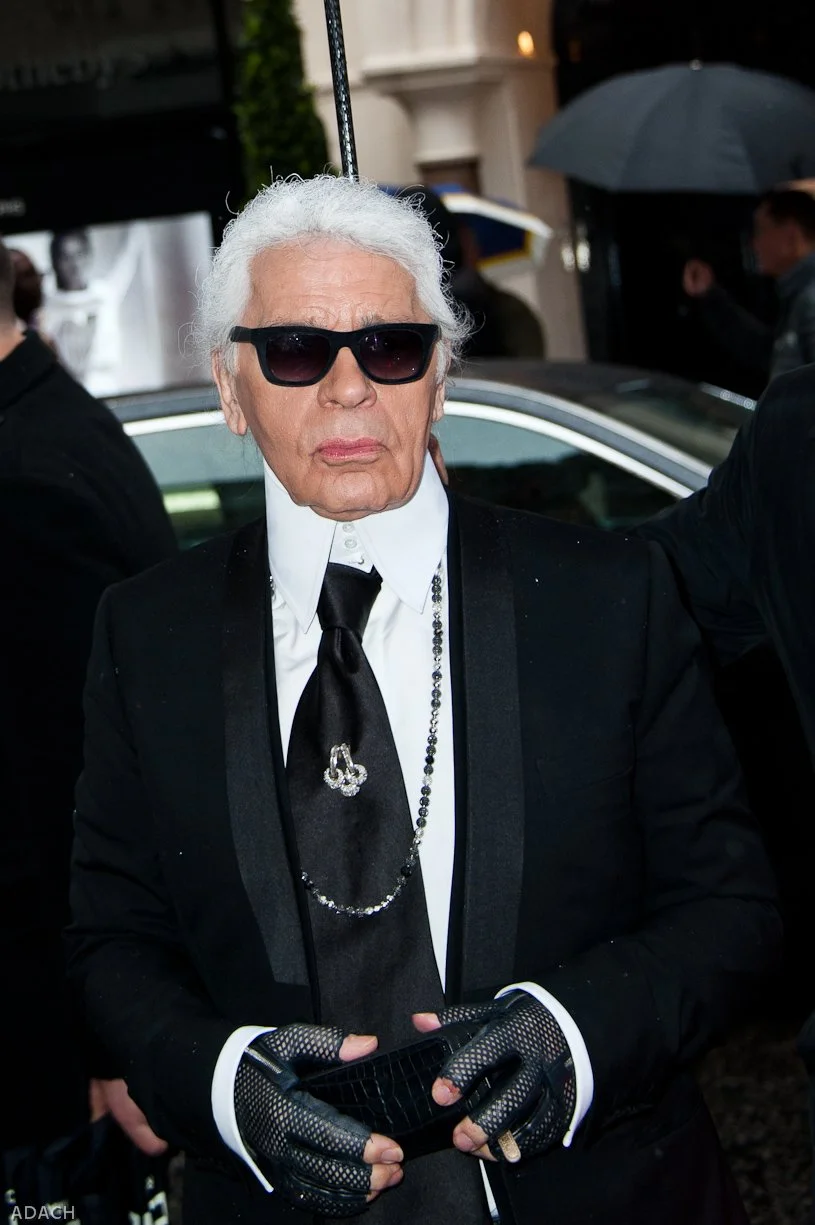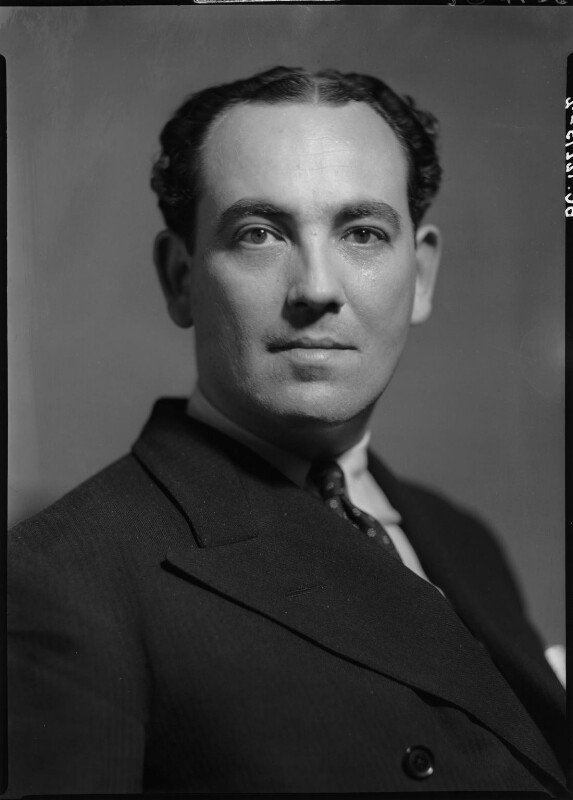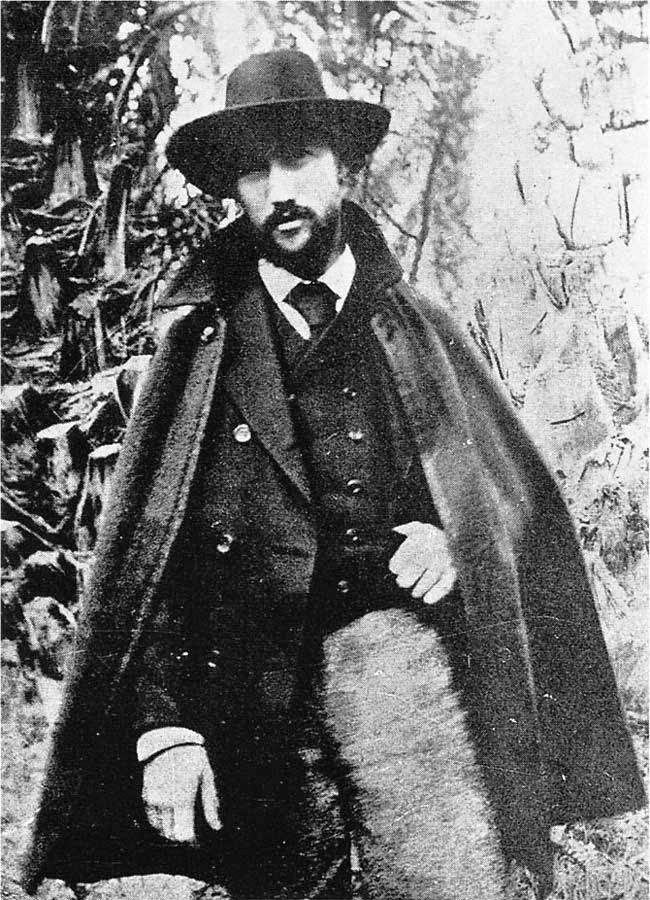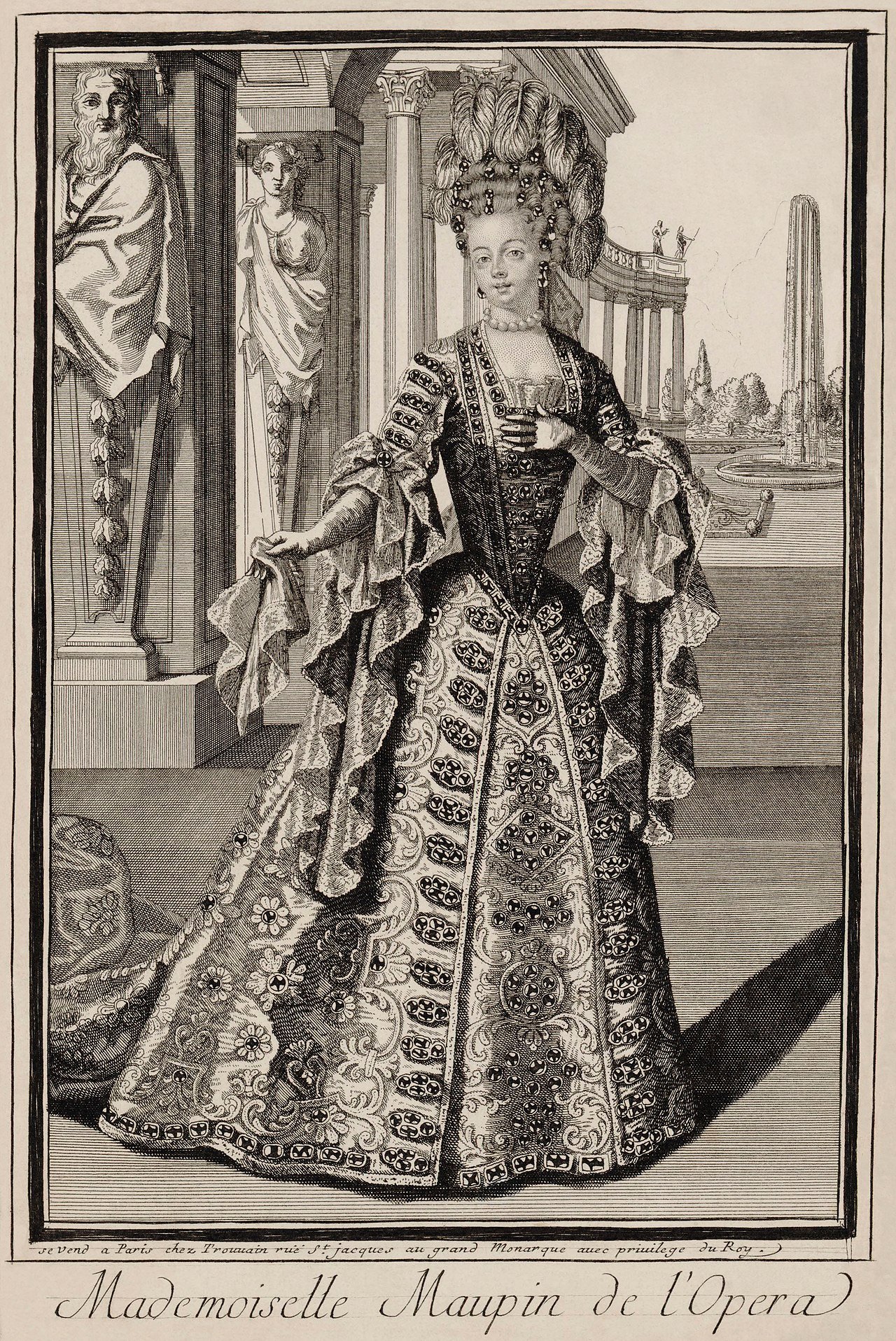S7E03: Ahebi Ugbabe
The complex life of Ahebi Ugbabe helps tell the story of the colonization and decolonization of Nigeria and of the similarities and the differences between the sex-gender systems we are used to in the contemporary west and the vast array of possibilities in those sex-gender systems throughout different human societies.
Today’s subject was an uneducated woman who was born in approximately 1880 and rose in her nearly 70 years of life from enslavement to sex work to female king. She was a leader of her community of Enugu-Ezike in present-day Nigeria and a collaborator with British colonialism in the region. Finally removed from power by British officials and local elders because she participated in a ritual in a way that only men were supposed to, the complex life of Ahebi Ugbabe helps tell the story of the colonization and decolonization of Nigeria and of the similarities and the differences between the sex-gender systems we are used to in the contemporary west and the vast array of possibilities in those sex-gender systems throughout different human societies.
SOURCES:
Nwando Achebe, The Female King of Colonial Nigeria: Ahebi Ugbabe (Bloomington: Indiana University Press, 2011).
Our intro music is Arpeggia Colorix by Yann Terrien, our outro music was made for us by DJ Michaeloswell Graphicdesigner
S702: Joe Orton and Kenneth Halliwell
Two writers from the North of England who made their way in the repressive, damp climate of the postwar UK, went to jail for turning library books into collage art, abused boys in Tunisia, and met a grisly end.
Warning: this episode contains discussions of domestic violence, child sexual abuse, and suicide. Listener discretion is advised.
A rare twofer this week on our show: we discuss the lives and careers of Joe Orton and Kenneth Halliwell. Both frustrated writers from the North of England making their way in the repressive, damp climate of the postwar UK, they were sent to prison for defacing library books into brilliant collage art. But when Orton achieved fame and success, the pressure was too much for Halliwell to bear. And their disturbing pattern of traveling to Tunisia to abuse children casts a pall on any simple attempt to recuperate them as heroes.
SOURCES:
Ilsa Colsell, Philip Hoare, and Leonie Orton Barnett, Malicious Damage: The Defaced Library Books of Kenneth Halliwell and Joe Orton (Donlon Books, 2013)
Prick Up Your Ears (Curzon Film Distributors, 1987)
James Fox, “The Life and Death of Joe Orton,” The Sunday Times, November 22, 1970
John Lahr, Prick Up Your Ears: The Biography of Joe Orton, 1st edition (Berkeley: Univ of California Pr, 2000)
Joe Orton, The Orton Diaries, Reprint edition (New York: Da Capo Press, 1996)
“Joe Orton,” Front Row (BBC Radio 4, August 11, 2017), https://www.bbc.co.uk/programmes/b08zzly6
Our intro music is Arpeggia Colorix by Yann Terrien, our outro music was made for us by DJ Michaeloswell Graphicdesigner
S701: Karl Lagerfeld
A white-haired, powdered, starch-cuffed petty dictator who ruled over the expanding business with an iron fist, stopping every once in a while to make a misogynist or racist public comment, Karl Lagerfeld was one of the most influential figures in the fashion industry as it shifted into late capitalist hyperdrive.
Are you wearing the Chanel boots? Yes, we are. A white-haired, powdered, starch-cuffed petty dictator who ruled over the expanding business with an iron fist, stopping every once in a while to make a misogynist or racist public comment, Karl Lagerfeld was one of the most influential figures in the fashion industry as it shifted into late capitalist hyperdrive. Come for the racist and misogynist public comments, stay for Lagerfeld's great love, Jacques de Bascher, who may more perfectly epitomize Evil Twink Energy than anyone we've discussed on our show.
SOURCES:
Christian Allaire, “The Incredible Dandy Style of Jacques de Bascher, Karl Lagerfeld’s Longtime Partner | Vogue,” Vogue, April 27, 2023, https://www.vogue.com/slideshow/jacques-de-bascher-dandy-style-karl-lagerfeld-partner
Irina Baconsky, “Jacques de Bascher: An Exhibition,” 032c, March 11, 2020, https://032c.com/magazine/jacques-de-bascher-an-exhibition
Holly Brubach, “School of Chanel,” The New Yorker, February 19, 1989, https://www.newyorker.com/magazine/1989/02/27/school-of-chanel
John Colapinto, “Karl Lagerfeld’s Fashion Empire,” The New Yorker, March 12, 2007, https://www.newyorker.com/magazine/2007/03/19/in-the-now
Brock Colyar, “The Man in an 18-Year Relationship With Karl Lagerfeld,” The Cut, February 20, 2019, https://www.thecut.com/2019/02/who-was-jacques-de-bascher.html
Daniel Harris, “The Electronic Funeral: Mourning Versace,” The Antioch Review 56, no. 2 (1998): 154–63, https://doi.org/10.2307/4613651
Beatrice Hazlehurst, “Karl Lagerfeld Depicts Hitler in Political Cartoon to Criticize Angela Merkel - PAPER Magazine,” October 12, 2017, https://www.papermag.com/karl-lagerfeld-depicts-hitler-in-political-cartoon-to-criticize-angela-merkel
Michael Hobbes and Aubrey Gordon, “Diet Book Deep Dive: The Karl Lagerfeld Diet,” Maintenance Phase, accessed February 14, 2024, https://maintenancephase.buzzsprout.com/1411126/9898517
Anisha Mansuri, “The Met Gala: Ignoring Lagerfeld’s Islamophobia and Misogyny,” The New Arab (The New Arab, October 18, 2022), https://www.newarab.com/opinion/met-gala-ignoring-lagerfelds-islamophobia-and-misogyny
William Middleton, Paradise Now: The Extraordinary Life of Karl Lagerfeld (New York, NY: Harper, 2023)
Melissa Minton, “Karl Lagerfeld’s Most Controversial Quotes over the Years,” The New York Post, April 28, 2023, sec. Page Six, https://pagesix.com/article/karl-lagerfeld-most-controversial-quotes/
David Rakoff, Don’t Get Too Comfortable: The Indignities of Coach Class, The Torments of Low Thread Count, The Never- Ending Quest for Artisanal Olive Oil, and Other First World Problems, Reprint Edition (Knopf Doubleday Publishing Group, 2006).
“Karl Lagerfeld: A Line of Beauty,” The Metropolitan Museum of Art, accessed February 12, 2024, https://www.metmuseum.org/exhibitions/a-line-of-beauty
“King Karl,” Kids of Dada, accessed February 12, 2024, https://www.kidsofdada.com/blogs/magazine/11625457-king-karl
Our intro music is Arpeggia Colorix by Yann Terrien, our outro music was made for us by DJ Michaeloswell Graphicdesigner
S6E10: Benedetta Carlini
The 16th century mystic nun, lesbian, and possibly demonically possessed heretic Benedetta Carlini was the subject of a 2021 film by Paul Verhoeven. We’re telling the true story of her life.
What's your favorite Paul Verhoeven film? We knew you were going to say Showgirls–but we'll put in a word for his latest, Benedetta, with Charlotte Rampling acting up a storm and nuns diddling each other with dildos carved out of statues of the Virgin. Improbably, the film is based on a true story: and within it, and within its subject's life, there are important themes of power, gender transgression, sin, belief and deviance that are worth discussing in more detail. Today, we discuss the 16th century mystic nun, lesbian, possibly demonically possessed and possibly visionary heretic, Benedetta Carlini.
SOURCES:
Brown, Judith C. Immodest Acts: The Life of a Lesbian Nun in Renaissance Italy. Reprint édition. New York, NY: Oxford University Press, 1986.
———. “Lesbian Sexuality in Renaissance Italy: The Case of Sister Benedetta Carlini.” Signs 9, no. 4 (1984): 751–58.
Cohn, Norman. The Pursuit of the Millennium: Revolutionary Millenarians and Mystical Anarchists of the Middle Ages, Revised and Expanded Edition. Revised edition. New York: Oxford University Press, 1970.
Ginzburg, Carlo. The Cheese and the Worms: The Cosmos of a Sixteenth-Century Miller. Translated by John Tedeschi and Anne C. Tedeschi. Reprint edition. Baltimore: Johns Hopkins University Press, 2013.
“The Word Made Fresh: Mystical Encounter and the New Weird Divine - Journal #92.” Accessed June 6, 2023. https://www.e-flux.com/journal/92/205298/the-word-made-fresh-mystical-encounter-and-the-new-weird-divine/.
Our intro and outro music are, respectively, Arpeggia Colorix, by Yann Terrien, and a tune written for us by DJ Michael Oswell Graphic Designer.
S6E9: Tokugawa Iemitsu
Through the life of this 17th century Japanese shogun, we explore the role of same-sex relationships in Japanese court culture of the time, the radically different meanings of age and gender in different times and places, and a gay teen romance that ends, alas, with being stabbed to death in the bathtub.
Through the life of this 17th century Japanese shogun, we explore the role of same-sex relationships in Japanese court culture of the time, the radically different meanings of age and gender in different times and places, and a gay teen romance that ends, alas, with being stabbed to death in the bathtub.
SOURCES:
Louis Crompton, Homosexuality & Civilization, Annotated edition (Cambridge, Mass.: Harvard University Press, 2006)
Koichi, “The Gay of the Samurai,” Tofugu, September 30, 2015, https://www.tofugu.com/japan/gay-samurai/
Gregory M. Pflugfelder, Cartographies of Desire: Male-Male Sexuality in Japanese Discourse, 1600–1950 (Berkeley: University of California Press, 2007)
Our intro music is Arpeggia Colorix by Yann Terrien, downloaded from WFMU's Free Music Archive and distributed under a Creative Commons Attribution-ShareAlike License. Our outro music is by DJ Michaeloswell Graphicsdesigner. Image via.
S6E8: Dong Xian
There’s power in being the king who sits upon the throne, but also power in being the throne upon who the king sits. This was true as ever in the court of Emperor Ai in Han Dynasty China in 22 BC.
There’s power in being the king who sits upon the throne, but also power in being the throne upon who the king sits. This was true as ever in the court of Emperor Ai in Han Dynasty China in 22 BC. We’re going to be talking about someone who in 21 short years of life rose from a low class status to being one of the most powerful imperial officials in China – all by becoming the favorite of the Emperor. Their passion was so renowned it led to the creation of what remains a Chinese idiomatic expression for homosexuality. But we’ll also be talking about prevailing bisexuality in the Han dynasty court, the reception culture of this story both in China and outside it then and now, and how people in both China and the West have adopted this story.
SOURCES:
Howard Chiang, “Epistemic Modernity and the Emergence of Homosexuality in China: Epistemic Modernity and the Emergence of Homosexuality in China,” Gender & History 22, no. 3 (November 2010): 629–57, https://doi.org/10.1111/j.1468-0424.2010.01612.
Bret Hinsch, Passions of the Cut Sleeve: The Male Homosexual Tradition in China, Reprint edition (Berkely, Calif.: University of California Press, 1992)
Martin W. Huang, “Male-Male Sexual Bonding and Male Friendship in Late Imperial China,” Journal of the History of Sexuality 22, no. 2 (2013): 312–31
M. P. Lau and M. L. Ng, “Homosexuality in Chinese Culture,” Culture, Medicine and Psychiatry 13, no. 4 (December 1, 1989): 465–88, https://doi.org/10.1007/BF00052053
Tze-lan Deborah Sang, “Translating Homosexuality: The Discourse of Tongxing’ai in Republican China (1912–1949),” in Translating Homosexuality: The Discourse of Tongxing’ai in Republican China (1912–1949) (Duke University Press, 2000), 276–304
James D. Seymour, review of Review of Passions of the Cut Sleeve: The Male Homosexual Tradition in China, by Bret Hinsch, Journal of the History of Sexuality 3, no. 1 (1992): 141–43
Ping-Hsuan Wang, “I’m a ‘Cut-Sleeve’: Coming out from a POC Perspective,” Narrative Inquiry 31, no. 2 (July 12, 2021): 338–57, https://doi.org/10.1075/ni.19088.wan
Intersections: Interview with Samshasha, Hong Kong’s First Gay Rights Activist and Author,” accessed May 15, 2023, http://intersections.anu.edu.au/issue4/interview_mclelland.html.
Our intro music is Arpeggia Colorix by Yann Terrien, downloaded from WFMU's Free Music Archive and distributed under a Creative Commons Attribution-ShareAlike License. Our outro music is by DJ Michaeloswell Graphicsdesigner. Image via.
S6E7: Tom Driberg
Was he an honest or devious? A man driven by fidelity, or by treachery? Perhaps we’ll get to the bottom of it when we discuss the life of Tom Driberg, the Lord Bradwell, journalist, socialist, MP, Chairman of the Labour Party, and cocksucker.
Today’s figure is the sort of character who has been extinguished from British public life today, and maybe that’s for the best. He’s a mass of contradictions, the sort of mass that confuses the idea of an easy history of “lessons we can learn”. How did this man manage to be both an avant-garde poet and a gossip columnist, a communist revolutionary and a High Anglican devotee, a labour organiser and a lord? Or perhaps more accurately, how did he manage to inhabit all these roles with a level of seeming sincerity and honest commitment? Was he an honest man, or a devious one? A man driven by fidelity, or by treachery? Perhaps we’ll get to the bottom of it when we discuss the life of Tom Driberg, the Lord Bradwell, journalist, socialist, MP, Chairman of the Labour Party, and cocksucker.
SOURCES:
Tom Driberg, Ruling Passions (London: Quartet Books, 1980).
Francis Wheen, The Soul of Indiscretion: Tom Driberg ; Poet, Philanderer, Legislator and Outlaw (London: Fourth Estate, 2001).
Our intro music is Arpeggia Colorix by Yann Terrien, downloaded from WFMU's Free Music Archive and distributed under a Creative Commons Attribution-ShareAlike License. Our outro music is by DJ Michaeloswell Graphicsdesigner. Image via.
S6E6: Griselda Blanco
Today’s subject was la Madrina, the drug lord of the Colombian Medellín Cartel. Born in 1943 in Cartegena, on the north coast of Columbia, she became the so-called "Queenpin," and adopted all the macho tropes of the gangster.
Nicki Minaj once rapped: Drug Lord Griselda, I used to move weight thru Delta. She’s referring to today’s subject, la Madrina, the drug lord of the Colombian Medellín Cartel, Griselda Blanco Restrepo, the Black Widow. Born in 1943 in Cartegena, on the north coast of Columbia, she became the so-called "Queenpin," and adopted all the macho tropes of the gangster. We argue she wasn't the biggest gangster at the head of her cartel, but one of the smallest gangsters in a whole world of cartels that have worked to bring the fruits of South America’s land into the United States market, at the cost of millions of human lives.
SOURCES:
José Guarnizo Álvarez, “Colombia’s ‘Cocaine Queen’ Living in Obscurity When She Was Shot Dead,” EL PAÍS English, September 13, 2012, sec. International, https://english.elpais.com/elpais/2012/09/13/inenglish/1347536945_696771.html
Episode 2: Berner Interviews Michael Corleone Blanco (Full Episode), 2019, https://www.youtube.com/watch?v=eODEHYQhKO0
Billy Corben, “Griselda Blanco: Hasta Nunca y Gracias Por La Coca,” Vice, May 9, 2012, https://www.vice.com/es/article/3b5jz8/griselda-blanco-so-long-and-thanks-for-all-the-cocaine
James Kelly, “South Florida: Trouble in Paradise,” Time, November 23, 1981, https://content.time.com/time/subscriber/article/0,33009,922693,00.html
Justin Vallejo, “Wild Real Life Story behind ‘Cocaine Godmother’ Portrayed by Sofia Vergara,” The Independent, April 5, 2022, sec. News, https://www.independent.co.uk/news/world/americas/griselda-blanco-sofia-vergara-netflix-b2051670.html.
Our intro music is Arpeggia Colorix by Yann Terrien, downloaded from WFMU's Free Music Archive and distributed under a Creative Commons Attribution-ShareAlike License. Our outro music is by DJ Michaeloswell Graphicsdesigner. Image via.
S6E5: André Gide
This week, we tackle the French author André Gide, a self-styled "immoralist" who oscillated between an austere Protestantism and a sensualism he associated with the so-called "Orient," and who elevated pederasty above sodomy in a way that helps us understand the often-disfiguring influence of upper-class male sexual desires on the construction of the 20th century gay male identity.
Warning: this episode contains discussions of child sexual abuse. Listener discretion is advised.
This week, we tackle the French author André Gide, a self-styled "immoralist" who oscillated between an austere Protestantism and a sensualism he associated with the so-called "Orient," and who elevated pederasty above sodomy in a way that helps us understand the often-disfiguring influence of upper-class male sexual desires on the construction of the 20th century gay male identity.
SOURCES:
Kadji Amin, Disturbing Attachments: Genet, Modern Pederasty, and Queer History, electronic resource, Theory Q (Durham: Duke University Press, 2017)
Andre Gide, If It Die . . .: An Autobiography, New Ed edition (New York: Vintage, 2001)
Andre Gide, The Counterfeiters (Vintage, 2012)
Andre Gide, The Immoralist, trans. Richard Howard, Reissue edition (Vintage, 2014)
Mary McAuliffe, Paris on the Brink: The 1930s Paris of Jean Renoir, Salvador Dalí, Simone de Beauvoir, André Gide, Sylvia Beach, Léon Blum, and Their Friends, Illustrated edition (Lanham Boulder New York London: Rowman & Littlefield Publishers, 2020)
George D. Painter, Andre Gide: A Critical Biography (London: Littlehampton Book Services Ltd)
Edward W. Said, Culture and Imperialism, Reprint edition (New York: Vintage, 1994).
Alan Sheridan, André Gide: A Life in the Present (Harvard University Press, 1999)
Edmund White, "On the chance that a shepherd boy...," London Review of Books, December 10, 1998, https://www.lrb.co.uk/the-paper/v20/n24/edmund-white/on-the-chance-that-a-shepherd-boy.
Our intro music is Arpeggia Colorix by Yann Terrien, downloaded from WFMU's Free Music Archive and distributed under a Creative Commons Attribution-ShareAlike License. Our outro music is by DJ Michaeloswell Graphicsdesigner.
S6E4: Mustapha Ben Ismaïl
Today we welcome special guest Arthur Asseraf to talk about Mustapha Ben Ismaïl, a terrifyingly ambitious twink who rose from being an illiterate street beggar to Prime Minister on the strength of the king's love for him –– and whose disastrous policies helped bring an end to Tunisia's independence.
Today we welcome special guest (and Associate Professor in History at the University of Cambridge) Arthur Asseraf to talk about Mustapha Ben Ismaïl, a terrifyingly ambitious twink who rose from being an illiterate street beggar to Prime Minister on the strength of the king's love for him –– and whose disastrous policies helped bring an end to Tunisia's independence.
SOURCES:
Ramy Khouili & Daniel Levine-Spound, Article 230: A History of the Criminalization of Homosexuality in Tunisia, available online: https://article230.com/en/article-320-eng/…
Marcel Gandolphe, ‘Une figure tunisienne: Mustapha ben Ismaïl’, Revue tunisienne, 144, mars-avril 1921, p.83-87
Khayr al-Din al-Tunsi, Memoirs, (ed. Mohamed-Salah Mzali and Jean Pignon), Tunis, 1971.
Ibn Abi Dhiaf, Ahmad, Ithaf Ahl al-zaman bi Akhbar muluk Tunis wa 'Ahd el-Aman (إتحاف أهل الزمان بأخبار ملوك تونس وعهد الأمان), (1990 edition), Tunis.
Jean Ganiage, Les Origines du Protectorat français en Tunisie, Tunis, 1959.
Guellouz, Masmoudi, Smida, Histoire générale de la Tunisie: t.3 les temps modernes, Tunis, 1983.
Khaled el Rouayheb, Before Homosexuality in the Arab-Islamic World, 1500-1800, Chicago, 2005.
Jocelyne Dakhlia, L’Empire des passions: l'arbitraire politique en Islam, Paris, 2005.
Kenneth Perkins, A History of Modern Tunisia, Cambridge University Press, 2014.
Abdelhamid Larguèche, Les Ombres de Tunis: pauvres, marginaux et minorités aux XVIIIe et XIXe siècles, Tunis, 2000.
Abdelwahab Bouhdiba, La sexualité en islam, Paris, 1975.
Nizar ben Saad, Lella Kmar, le destin tourmenté d’une nymphe du sérail (1862-1942), Tunis.
Robert Aldrich, 'Homosexuality in the French Colonies', Journal of Homosexuality, 41:3-4, 2002
Joseph Massad, Desiring Arabs, Chicago, 2007.
Sirat Mustafa bin Isma'il (سيرة مصطفى بن اسماعيل ( edited Rashad al-Imam, Tunis, 1981
Our intro and outro music are, respectively, Arpeggia Colorix, by Yann Terrien, and a tune written for us by DJ Michael Oswell Graphic Designer.
S6E3: Jorge Horacio Ballvé Piñero
Argentina, 1942: a scandal breaks. Tabloids scream about newly discovered photographs taken at homosexual orgies in amateur photographer Jorge Horacio Ballvé Piñero’s apartment: photos allegedly depicting young cadets from the national military university in compromising positions.
Argentina, 1942: a scandal breaks. Tabloids scream about newly discovered photographs –– taken by the amateur photographer Jorge Horacio Ballvé Piñero –– at homosexual orgies in Ballvé's apartment, photos allegedly depicting young cadets from the national military university in compromising positions. 29 cadets are expelled, discharged, and/or punished, Ballvé thrown in jail, and the government collapsed, toppled by a right-wing coup promising moral cleanup.
SOURCES:
Demaría, Gonzalo. Cacería. Primera edición. Buenos Aires: Planeta, 2020.
———. Jugos de Amor e Guerra. Buenos Aires, Argentina: Centro Cultural de la Cooperación, 2019.
Encarnación, Omar Guillermo. Out in the Periphery: Latin America’s Gay Rights Revolution. New York: Oxford University Press, 2016.
Espinoza, Lucas E, and Rosalva Resendiz. “Los Secretos de La Redada de Los 41 (The Secrets of the Raid of the 41): A Sociohistorical Analysis of a Gay Signifier.” In NAACS Annual Conference Proceedings. San Jose State University, 2018.
Melo, Adrian. “Cadetes de San Martín | Entrevista a Gonzalo Demaría, que investiga los expedientes judiciales del conocidísimo escándalo de los cadetes.” PAGINA12, 1560903914. https://www.pagina12.com.ar/201169-cadetes-de-san-martin.
Our intro music is Arpeggia Colorix by Yann Terrien, downloaded from WFMU's Free Music Archive and distributed under a Creative Commons Attribution-ShareAlike License. Our outro music is by DJ Michaeloswell Graphicsdesigner. Image –– which depicts the avenue in Buenos Aires where Ballvé found some of his tricks — via.
S6E2: Julie D’Aubigny
She's an icon, she's a legend, and she is the moment. The Mozart of bisexual drama, sword-fighting crossdressing opera singer Julie D'Aubigny burned through a dizzying series of lives, loves, husbands, mistresses, swordfights, operatic performances, lovers, and successes at the Paris Opera before dying in a convent in her early 30s.
She's an icon, she's a legend, and she is the moment: today’s subject caused such a scandal in her life that even its fictionalized depiction in a novel was banned by the New York Society for the Suppression of Vice. The Mozart of bisexual drama, sword-fighting crossdressing opera singer Julie D'Aubigny burned through a dizzying series of lives, loves, husbands, mistresses, swordfights, operatic performances, lovers, and successes at the Paris Opera before dying in a convent in her early 30s.
SOURCES
“Biographical Sketches and Anecdotes: Julie D’Aubigny.” In The Dublin University Magazine, 408–10. William Curry, Jun., and Company, 1854.
Blackmer, Corrine, and Patricia Juliana Smith, eds. En Travesti: Women, Gender Subversion, Opera. 0 edition. New York: Columbia University Press, 1995.
Carlton, Genevieve. “Meet The Sword-Fighting, Bisexual Opera Singer Who Broke All The Rules In 17th-Century France.” All That’s Interesting, March 3, 2022. https://allthatsinteresting.com/julie-daubigny.
Cuttle, Jade. “The Story of Julie d’Aubigny: The French Opera-Singing Sword Fighter.” Culture Trip, August 8, 2018. https://theculturetrip.com/france/articles/the-story-of-julie-daubigny-the-french-opera-singing-sword-fighter/.
Gautier, Theophile. Mademoiselle de Maupin. Translated by Patricia Duncker. Revised edition. Cambridge, London: Penguin Classics, 2005.
Giovetti, Olivia. “Women In Love.” VAN Magazine, April 9, 2020. https://van-magazine.com/mag/women-in-love/.
Harris, Joseph. Hidden Agendas: Cross-Dressing in 17th-Century France. Tübingen: Narr Dr. Gunter, 2011.
Hoddinott, Fiona Zublin, Meradith. “The Badass Rogue Who Cross-Dressed and Dueled Her Way to Infamy.” OZY(blog), January 27, 2020. http://www.ozy.com/true-and-stories/the-badass-rogue-who-cross-dressed-and-dueled-her-way-to-infamy/76908.
Interlude. “The Daring Criminal Swordswoman Who Became an Opera Star!” Interlude (blog), October 28, 2016. https://interlude.hk/lesbian-diva-swordswoman-julie-daubigny-aka-mademoiselle-maupin/.
Kelly Gardiner. “The Real Life of Julie d’Aubigny,” May 11, 2014. https://kellygardiner.com/fiction/books/goddess/the-real-life-of-julie-daubigny/.
Koestenbaum, Wayne. Queen’s Throat: Opera, Homosexuality And The Mystery Of Desire. Reprint edition. London: Da Capo Press, 2001.
“Maupin, d’Aubigny (c. 1670–1707) | Encyclopedia.Com.” Accessed January 9, 2023. https://www.encyclopedia.com/women/encyclopedias-almanacs-transcripts-and-maps/maupin-daubigny-c-1670-1707.
Tucker, Holly. City of Light, City of Poison: Murder, Magic, and the First Police Chief of Paris. Reprint edition. New York: W. W. Norton & Company, 2018.
Vitale, Alex S. The End of Policing. Updated edition. New York: Verso, 2021.
Westby, Alan. “Julie d’Aubigny: La Maupin and Early French Opera.” The Los Angeles Public Library, June 28, 2017. https://www.lapl.org/collections-resources/blogs/lapl/julie-daubigny-la-maupin-and-early-french-opera.
Our intro music is Arpeggia Colorix by Yann Terrien, downloaded from WFMU's Free Music Archive and distributed under a Creative Commons Attribution-ShareAlike License. Our outro music is by DJ Michaeloswell Graphicsdesigner. Image via.
S6E1: George Santos
In any gay bar, there is at least one delusional queen who can't stop lying about his life. If you give him firearms and crystal meth, he turns into Andrew Cunanan. If you elect him to Congress, he turns into George Santos, who we argue is as likely as anyone else to become the first gay President of the United States.
We're starting off Season Six with George Santos, who rocketed the pathological homosexual narcissism we've spent much of our show discussing to the halls of Congress. In gay bar, there is at least one delusional queen who can't stop lying about his life. If you give him firearms and crystal meth, he turns into Andrew Cunanan. If you elect him to Congress, he turns into George Santos, who we argue is as likely as anyone else to become the first gay President of the United States.
SOURCES:
https://www.nytimes.com/2022/12/19/nyregion/george-santos-ny-republicans.html
https://www.theguardian.com/us-news/2019/jun/27/pete-buttigieg-police-shooting-south-bend-indiana
https://forward.com/fast-forward/529798/george-santos-jewish-american-republican-congress/
https://www.nytimes.com/2022/12/23/nyregion/george-santos-republican-resume.html
https://thehandbasket.substack.com/p/the-daily-santos-vol-7
https://www.vox.com/policy-and-politics/23520848/george-santos-fake-resume
https://patch.com/new-york/oysterbay/disabled-veteran-george-santos-took-3k-dying-dogs-gofundme
https://www.nytimes.com/2023/03/15/nyregion/george-santos-yacht.html
https://nymag.com/intelligencer/2023/03/the-plan-for-george-santos-magas-newest-it-girl.htm
https://nymag.com/intelligencer/2023/03/george-santos-files-paperwork-to-run-in-2024.html
Our intro music is Arpeggia Colorix by Yann Terrien, downloaded from WFMU's Free Music Archive and distributed under a Creative Commons Attribution-ShareAlike License. Our outro music is by DJ Michaeloswell Graphicsdesigner. Image via.
Jack Saul LIVE! at Foyles in London with Shon Faye
Happy Christmas! It's Bad Gays Live! Relive our reading of the Jack Saul chapter – covering the life and times of the Victorian sex worker and pornographer – from our book BAD GAYS: A HOMOSEXUAL HISTORY at Foyles in London, with the inimitable Shon Faye reading out the saucy bits (maybe use headphones if you're spending today with Grandma, unless you and Grandma like joking about delicious frigging up the rear), followed by a conversation with her and the audience about the project.
SOURCES:
Chandler, Glenn. The Sins of Jack Saul. Surbiton, UK: Grosvenor House Publishing, 2016.
Hyde, H Montgomery. The Cleveland Street Scandal. New York: Coward, McCann & Geoghegan, 1976.
McKenna, Neil. Fanny and Stella: The Young Men Who Shocked Victorian England. London: Faber, 2014.
Saul, Jack. The Sins of the Cities of the Plain. London: William Lazenby, 1881.
Our intro and outro music are, respectively, Arpeggia Colorix, by Yann Terrien, and a tune written for us by DJ Michael Oswell Graphic Designer.
Special Episode: Magnus Hirschfeld
On the pioneering sexologist and his troubling record on race, eugenics, and sex work; with the historian Laurie Marhoefer.
It's the Magnus Hirschfeld episode. We invited Laurie Marhoefer – Jon Bridgman Endowed Professor of History at the University of Washington, and one of our most-cited historians ever – to discuss their new book on Hirschfeld, called Racism and the Making of Gay Rights: A Sexologist, His Student, and the Empire of Queer Love. On the episode, we touch on Hirschfeld's life story as a pioneering doctor who helped invent modern homosexual identities and worked on some forms of trans-affirming health care –– while also discussing the ways he integrated racism into the homosexual identities he was creating, collaborated with eugenicists, and was often willing to accept more rights for some at the expense of others.
Our intro and outro music are, respectively, a tune written for us by DJ Michael Oswell Graphic Designer and Arpeggia Colorix, by Yann Terrien.
Special Episode: Eugen Sandow
The bodybuilder who spread the cult of muscle around the world.
Happy Pride! We invited Ruby Hann, who completed her MA in History in 2020 and her MSc in History in 2021, both at the University of Edinburgh, to talk about Eugen Sandow, the bodybuilder who spread the cult of muscle around the world. Her research is focused on masculinity, sexuality, and the body in early twentieth century Britain. Ruby is not currently in academia, but she still occasionally writes, lectures, and attends conferences. You can follow her Twitter @RubyVolunteers to find her work.
SOURCES:
Budd, M. A. The Sculpture Machine: Physical Culture and Body Politics in the Age of Empire. New York: New York University Press, 1997.
Chapman, David. Sandow the Magnificent: Eugen Sandow and the Beginnings of Bodybuilding. Urbana: University of Illinois Press, 1994.
Dyer, Richard. White: Twentieth Anniversary Edition, 2nd ed. London: Routledge, 2017.
Waller, David. The Perfect Man: The Muscular Life and Times of Eugen Sandow, Victorian Strongman. Brighton: Victorian Secrets Limited, 2011.
Waugh, Thomas. Hard to Imagine: gay male eroticism in photography and film from their beginnings to Stonewall. New York: Columbia University Press, 1996.
Brauer, Fae. ‘Virilizing and Valorizing Homoeroticism: Eugen Sandow’s Queering of Body Cultures Before and After the Wilde Trials’, Visual Culture in Britain 18:1 (2017), 35–67.
Conrad, Sebastian. ‘Globalizing the Beautiful Body: Eugen Sandow, Bodybuilding, and the Ideal of Muscular Manliness at the Turn of the Twentieth Century’, Journal of World History 32:1 (2021), 95–125.
Elledge, Jim. ‘Eugen Sandow’s gift to gay men’, The Gay & Lesbian Review Worldwide 18:4 (2011).
Mullins, Greg. ‘‘Nudes, Prudes, and Pigmies: The Desirability of Disavowal in "Physical Culture"’, Discourse 15:1 (1992), 27–48.
Snow, K. Mitchell. ‘Does this fig leaf make me look gay? Strongmen, statue posing and physique photography’, Early Popular Visual Culture 17:2 (2019), 135–155.
Watt, Carey A. ‘Cultural Exchange, Appropriation and Physical Culture: Strongman Eugen Sandow in Colonial India, 1904–1905’, The International Journal of the History of Sport 33:16 (2016), 1921–1942.
S5E11: Jeffrey Dahmer
For white, suburban, heterosexual middle America, Jeffrey Dahmer, like AIDS, was the natural, even the righteous, consequence of homosexual promiscuity. He remains one of the exemplary constructions of the supervillain serial killer, the perfect subject of a true crime story. We look at how homophobia, racism, and the various true crime myths Dahmer helped reify ironically impeded his arrest and enabled his crimes.
For white, suburban, heterosexual middle America, Jeffrey Dahmer, like AIDS, was the natural, even the righteous, consequence of homosexual promiscuity. He remains one of the exemplary constructions of the supervillain serial killer, the perfect subject of a true crime story. Today’s episode is about Jeffrey Dahmer as man and metaphor: about the phenomenon of the serial killer-monster, about the ways in which homophobia, racism, and the various true crime myths Dahmer helped reify ironically impeded his arrest and enabled his crimes, and about the twisted, slap-happy identification with Dahmer pursued by some gay men.
SOURCES:
ABC News. “Jeffrey Dahmer Hero Charged With Homicide.” ABC News. Accessed March 15, 2022. https://abcnews.go.com/US/jeffrey-dahmer-hero-tracy-edwards-charged-homicide/story?id=14853608.
Barron, James. “Milwaukee Police Once Queried Suspect.” The New York Times, July 27, 1991, sec. U.S. https://www.nytimes.com/1991/07/27/us/milwaukee-police-once-queried-suspect.html.
AP NEWS. “Dahmer Case Raises Complaints of Racism With PM-Dahmer Confession, Bjt.” Accessed March 15, 2022. https://apnews.com/article/6452017abebdb9eaa87e90817bf59b7e.
AP NEWS. “Dahmer Tells Judge He Blames Nobody But Himself With PM-, AM-Dahmer Sentencing, Bjt.” Accessed March 15, 2022. https://apnews.com/article/49045923cf0d3c1a0ffc82eda398b935.
AP NEWS. “Dahmer Tells Judge He Blames Nobody But Himself With PM-, AM-Dahmer Sentencing, Bjt.” Accessed March 15, 2022. https://apnews.com/article/49045923cf0d3c1a0ffc82eda398b935.
Davis, Donald A. The Jeffrey Dahmer Story: An American Nightmare. St. Martin’s Paperbacks, 1991.
Gage, Gabriella. “True Crime’s Deceits: The Genrefication of Tragedy.” Los Angeles Review of Books, June 21, 2021. https://lareviewofbooks.org/article/true-crimes-deceits-the-genrefication-of-tragedy/.
Masters, Brian. The Shrine of Jeffrey Dahmer. London: Hodder & Stoughton, 1993.
O’Brien, Brendan. “Homeless Man Who Escaped Cannibal Serial-Killer Jeffrey Dahmer Gets Prison Sentence.” National Post, January 24, 2012. https://nationalpost.com/news/homeless-man-who-escaped-canibal-serial-killer-jeffrey-dahmer-gets-prison-sentence.
Sarah McGonagall. “Did You Know? In 1991 Officer John Balcerzak Was Fired after Handing 14 Year-Old Konerak Sinthasomphone Back to the Man He Had Just Escaped from despite Two Bystanders Begging the Officer Not to. Later That Night, Konerak Was Tortured and Killed by That Same Man - Jeffrey Dahmer.” Tweet. @gothspiderbitch (blog), June 19, 2020. https://twitter.com/gothspiderbitch/status/1273785359869116421.
Toofab. “The Racist Reason White Cops Handed a Dying 14-Year-Old Back to Jeffrey Dahmer.” Accessed March 15, 2022. https://toofab.com/2020/06/19/white-cops-handed-a-dying-14-year-old-back-to-jeffrey-dahmer/.
Tithecott, Richard, and James R. Kincaid. Of Men and Monsters: Jeffrey Dahmer and the Construction of the Serial Killer. Madison: University of Wisconsin Press, 1997.
Our intro music is Arpeggia Colorix by Yann Terrien, downloaded from WFMU's Free Music Archive and distributed under a Creative Commons Attribution-ShareAlike License. Our outro music is by DJ Michaeloswell Graphicsdesigner.
S5E10: John Wojtowicz
The bank robber John Wojtowicz infamously held up a bank in 1972 to pay for gender-affirming surgery for Elizabeth Eden, his trans girlfriend. Or did he? We take a look, thinking through the ethical complications of Wojtowicz as a figure in history and in historical memory.
It's a dog day afternoon: today's episode profiles the bank robber John Wojtowicz, who infamously (and as memorialized in Sidney Lumet's 1975 film Dog Day Afternoon) held up a bank in 1972 to pay for gender-affirming surgery for Elizabeth Eden, his trans girlfriend. Or did he? We take a look, using the story to think through 1972 as a fault line for emerging attitudes about homosexuality and trans femininity, Wojtowicz' surprising involvement in early gay liberation activism in New York City, the Dog Day Afternoon phenomenon and what it says about growing distinctions between gay men and trans women and how they were represented and compensated, and the ethical complications of Wojtowicz as a figure in history and in historical memory.
Update:
Thanks to listener Ziz for pointing out that trans actress Elizabeth Coffey –– one of the legendary ensemble of Dreamlanders who starred in the films of extremely good gay John Waters –– was up for the role of the character in Dog Day Afternoon based on Eden and was turned down for looking ‘too feminine.’ This adds important context regarding the filmmakers’ transphobia and questions of representation and compensation in the film.
SOURCES:
Check out trans historian Zagria’s three part series on Eden and Wojtowicz, with links to some fantastic digitized primary sources at the end:
Zagria, "Liz Eden and Dog Day Afternoon,” (three-part series), Gender Variance Who's Who.
- https://zagria.blogspot.com/2020/08/liz-eden-and-dog-day-afternoon-part-i.html
- https://zagria.blogspot.com/2020/08/liz-eden-and-dog-day-afternoon-part-ii.html
- https://zagria.blogspot.com/2020/08/liz-eden-and-dog-day-afternoon-part-iii.html
Check out Morgan M. Page’s show One From The Vaults, you might want to start here with her three-part series on Street Transvestite Action Revolutionaries:
Morgan M Page, “OFTV 3: STAR House, STAR People,” accessed March 1, 2022, https://soundcloud.com/onefromthevaultspodcast/oftv-3-star-house-star-people-1.
Anthony Macias, “Gay Rights and The Reception of Dog Day Afternoon (1975),” Film & History: An Interdisciplinary Journal 48, no. 1 (2018): 45–56.
Arthur Bell, “Littlejohn & the Mob: Saga of a Heist,” The Village Voice, Vol. XVII, No. 35, August 31, 1972, https://www.villagevoice.com/2011/03/11/the-bank-robbery-that-would-become-dog-day-afternoon/.
“The Boys In The Bank,” LIFE Magazine September 22, 1972, LIFE Magazine
Garance Franke-Ruta, “The Prehistory of Gay Marriage: Watch a 1971 Protest at NYC’s Marriage License Bureau,” The Atlantic, March 26, 2013, https://www.theatlantic.com/politics/archive/2013/03/the-prehistory-of-gay-marriage-watch-a-1971-protest-at-nycs-marriage-license-bureau/274357/.
Lisa Photos, “The Dog and the Last Real Man,” Journal of Bisexuality 3, no. 2 (March 1, 2003): 43–68, https://doi.org/10.1300/J159v03n02_04.
Liz Eden Papers, Collection 6, The Lesbian, Gay, Bisexual, and Transgender Community Center Archive, New York City, New York (digitized) Morgan M. Page, “It Doesn’t Matter Who Threw the First Brick at Stonewall,” June 30, 2019, https://www.thenation.com/article/archive/trans-black-stonewall-rivera-storme/.
“The Man Who Robbed a Bank for Love,” BBC News, February 16, 2015, sec. Magazine, https://www.bbc.com/news/magazine-31457718.
Regan Reid, “Talking To the Directors Who Made a Doc About the Real Guy Behind ‘Dog Day Afternoon,’” Vice (blog), August 18, 2014, https://www.vice.com/en/article/bn3pd5/talking-to-the-directors-who-made-a-doc-about-the-real-guy-behind-dog-day-afternoon-342.
Susan Stryker, Transgender History: The Roots of Today’s Revolution second ed., (New York: Seal Press, 2008).
Our intro music is Arpeggia Colorix by Yann Terrien, downloaded from WFMU's Free Music Archive and distributed under a Creative Commons Attribution-ShareAlike License. Our outro music is by DJ Michaeloswell Graphicsdesigner.
S5E8&9: Cressida Dick
Until last week, she was the Commissioner of the Metropolitan Police, London’s police force, and was the first woman and the first LBGTQ person to hold the rank. We tell Dick's life story and then delve into the history of the Met, its relationship with LGBTQ people, and the conflicting strands of LGBTQ politics that emphasize conflict vs collaboration with the police.
Unusually for this show, which normally focuses on long departed historical figures, today we’re going to talk about someone who’s still very much in the news. Until last week, she was the Commissioner of the Metropolitan Police, London’s police force, and was the first woman and the first LBGTQ person to hold the rank, Dame Cressida Dick.
In part one of two: we begin telling Dick's life story and then delve into the history of the Met, its relationship with LGBTQ people, and the conflicting strands of LGBTQ politics that emphasize conflict vs collaboration with the police.
In part two of two: we discuss Dick's tenure at the Metropolitan Police, the extrajudicial murder of Jean Charles de Menezes, Dick's cynical deployment of her identity to deflect critique, the spy cops scandal, the botched investigation into gay serial killer Stephen Port, the Met's dismal record on race, and the protests that finally forced Dick out.
SOURCES:
Ramzy Alwakeel, “I Covered Stephen Port’s Murders. I Know Cressida Dick’s Departure Isn’t Enough,” OpenDemocracy, accessed February 22, 2022, https://www.opendemocracy.net/en/opendemocracyuk/cressida-dick-resignation-met-police-stephen-ports-murders/
Anonymous, “Gangs Violence Matrix and Black Londoners,” Text, Mayor’s Question Time, December 10, 2018, https://www.london.gov.uk/questions/2018/5242
Jason Bennetto, “We Are Still Racist, Police Chief Admits,” The Independent, April 21, 2003, sec. News, https://www.independent.co.uk/news/uk/crime/we-are-still-racist-police-chief-admits-116145.html
Owen Bowcott and Owen Bowcott Legal affairs correspondent, “Jean Charles de Menezes: Family Lose Fight for Police Officers to Be Prosecuted,” The Guardian, March 30, 2016, sec. UK news, https://www.theguardian.com/uk-news/2016/mar/30/jean-charles-de-menezes-police-officers-shouldshould-not-be-prosecuted-echr
Graham Bowley, “Police Erred in Shooting in London, Report Finds,” The New York Times, August 18, 2005, sec. World, https://www.nytimes.com/2005/08/18/world/europe/police-erred-in-shooting-in-london-report-finds.html
Caroline Davies, “Stephen Port Laptop Not Inspected until He Had Killed Three Times, Inquest Told,” The Guardian, October 13, 2021, sec. UK news, https://www.theguardian.com/uk-news/2021/oct/13/stephen-port-laptop-not-inspected-until-he-had-killed-three-times-inquest-told
Vikram Dodd and Dan Sabbagh, “Daniel Morgan Murder: Inquiry Brands Met Police ‘Institutionally Corrupt,’” The Guardian, June 15, 2021, sec. UK news, https://www.theguardian.com/uk-news/2021/jun/15/daniel-morgan-met-chief-censured-for-hampering-corruption-inquiry
Jamie Grierson and Jamie Grierson Home affairs correspondent, “Met Carried out 22,000 Searches on Young Black Men during Lockdown,” The Guardian, July 8, 2020, sec. Law, https://www.theguardian.com/law/2020/jul/08/one-in-10-of-londons-young-black-males-stopped-by-police-in-may
Mark Hughes, “Seven Mistakes That Cost De Menezes His Life,” The Independent, December 13, 2008, sec. News, https://www.independent.co.uk/news/uk/crime/seven-mistakes-that-cost-de-menezes-his-life-1064466.html
Marina Hyde, “Farewell, Cressida Dick, the Met Chief Only Interested in One Thing: Ignoring Bad Coppers,” The Guardian, February 11, 2022, sec. Opinion, https://www.theguardian.com/commentisfree/2022/feb/11/farewell-cressida-dick-the-met-chief-only-interested-in-one-thing-ignoring-bad-coppers
Paul Lewis and Rob Evans, “Secrets and Lies: Untangling the UK ‘spy Cops’ Scandal,” The Guardian, October 28, 2020, sec. UK news, https://www.theguardian.com/uk-news/2020/oct/28/secrets-and-lies-untangling-the-uk-spy-cops-scandal
Ben Quinn, “Macpherson Report: What Was It and What Impact Did It Have?,” The Guardian, February 22, 2019, sec. UK news, https://www.theguardian.com/uk-news/2019/feb/22/macpherson-report-what-was-it-and-what-impact-did-it-have
Alex S. Vitale, “Cressida Dick Isn’t the Problem. The Police Are the Problem,” OpenDemocracy, accessed February 22, 2022, https://www.opendemocracy.net/en/opendemocracyuk/cressida-dick-metropolitan-police-alex-vitale/
“Trapped in the Gangs Matrix” (Amnesty International, May 2020), https://www.amnesty.org.uk/london-trident-gangs-matrix-metropolitan-police
“Review Identifies Eleven Opportunities for the Met to Improve on Stop and Search | Independent Office for Police Conduct” (Independent Office for Police Conduct, October 2020), https://www.policeconduct.gov.uk/news/review-identifies-eleven-opportunities-met-improve-stop-and-search
“Stephen Port: How Met Failings Contributed to the Deaths of Three Men,” BBC News, December 10, 2021, sec. UK, https://www.bbc.com/news/uk-59576717.
Matt Houlbrook, Queer London: Perils and Pleasures in the Sexual Metropolis, 1918-1957 (Chicago, IL: University of Chicago Press, 2006
Moya Lothian-Maclean, “Lords of the Manor,” Human Resources, accessed February 15, 2022, https://podcasts.apple.com/gb/podcast/human-resources/id1565249472.
Asa Seresin, “Lesbian Fascism on TERF Island,” Asa Seresin (blog), February 11, 2021, https://asaseresin.com/2021/02/11/lesbian-fascism-on-terf-island/
“Untold: The Daniel Morgan Murder,” accessed February 15, 2022, https://podcasts.apple.com/gb/podcast/untold-the-daniel-morgan-murder/id1114802610.
We also encourage people listening to these episode to learn more about organizations combating police violence. Here are some organizations in the UK and around the world engaged in activist work related to this episode:
London Campaign against Police and State Violence http://lcapsv.net/
United Friends and Families Campaign https://uffcampaign.org/
Sisters Uncut https://www.sistersuncut.org/
Inquest - a charity that focuses on getting truth and accountability for state related deaths https://www.inquest.org.uk/
https://policespiesoutoflives.org.uk/
Kampagne für Opfer Rassistische Polizeigewalt Berlin: https://kop-berlin.de/
Critical Resistance resources on police abolition for US listeners: https://criticalresistance.org/abolish-policing/
Also, follow local Copwatches on Twitter:
@HackneyCopWatch @N15Copwatch @LambethCopwatch @CopwatchSthwrk @bizziewatch @MCRcopwatch @BristolCopwatch
@KidsOfColourHQ @npolicemonitor
Our intro music is Arpeggia Colorix by Yann Terrien, downloaded from WFMU's Free Music Archive and distributed under a Creative Commons Attribution-ShareAlike License. Our outro music is by DJ Michaeloswell Graphicsdesigner.
S5E7: Freddie Mercury
If the legacy of Mercury and his music often seems to smooth his work, and that of his band, Queen, into a sort of middle-aged, KISS FM everyday normality, here we lean into the contradictions of the charismatic man and the nuances of queer life in the 1970s and 1980s.
For a time, one of the world's most famous rock stars – singer of stadium rock anthems that still signify foot-stomping machismo – existed as an avatar of the most exuberant, feared, liberation-era forms of homosexuality: going from a 1970s long hair in skin-tight leotards cut to the navel to a Castro clone with a handlebar moustache who wore fisting T-shirts in his music videos. If the legacy of Mercury and his music often seems to smooth his work, and that of his band, Queen, into a sort of middle-aged, KISS FM everyday normality, here we lean into the contradictions of the charismatic man and the nuances of queer life in the 1970s and 1980s.
SOURCES:
John Harris, “The Sins of St Freddie,” The Guardian, January 14, 2005, sec. Music, https://www.theguardian.com/music/2005/jan/14/2
Jim Hutton and Tim Wapshott, Mercury and Me (London: Bloomsbury, 1995); Lesley-Ann Jones, Bohemian Rhapsody: The Definitive Biography of Freddie Mercury (London: Touchstone Press, 2012)
Matt Richards and Mark Langthorne, Somebody to Love: The Life, Death and Legacy of Freddie Mercury (London: Weldon Owen, 2016)
“Remembering Queen’s Infamous 1981 Tour of South America,” Remezcla (blog), accessed February 8, 2022, https://remezcla.com/features/music/we-remember-queens-infamous-tour-of-latin-america/
Our intro music is Arpeggia Colorix by Yann Terrien, downloaded from WFMU's Free Music Archive and distributed under a Creative Commons Attribution-ShareAlike License. Our outro music is by DJ Michaeloswell Graphicsdesigner.

